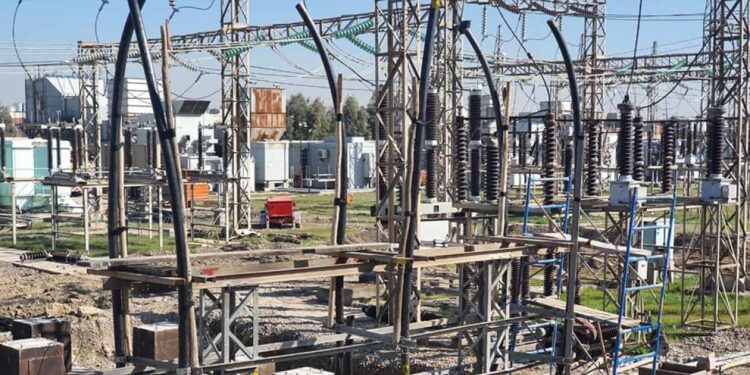3 Iraqi energy officials said that the country does not have immediate alternatives to compensating energy imported from Iran, noting that the shortage will hinder the provision of enough electricity to meet local consumption, especially in the summer.
Reuters quoted an official who described it as the largest in the Ministry of Electricity as saying: The government has started implementing urgent measures to reduce the impact of the US decision on electricity supplies in Iraq.
This comes after the United States canceled on Saturday an exemption that allows Iraq to buy electricity from Iran, as part of the “maximum pressure” campaign launched by President Donald Trump on Tehran to deny it financial revenues.
Iraq relies heavily on Iranian gas to operate its electrical stations, especially in the south, and this makes the country vulnerable to any fluctuations in gas supplies from Iran.
Iran provides Iraq with about 50 million cubic meters of gas per day, covering about a third of the country’s needs, which is enough to produce about 6 thousand megawatts of electricity.
Outside the system
For his part, the American Chargé d’Affaires in Baghdad, Daniel Robinstein, said that Iraq importing natural gas from Iran is still outside the US sanctions system.
According to a statement issued by the media office of the head of the Finance Committee in the Iraqi Council of Representatives, Atwan Al -Atwani, who met Robinstein in Baghdad, the two sides discussed the United States canceling the exemption granted to Iraq to import natural gas from Iran in order to generate electricity.
Al -Atwani expressed his concern about the end of the exemption period granted to Iraq to import natural gas from Iran.
He pointed out that Iraq stops importing gas from Iran will lead to the collapse of the national electrical system, especially in the summer months, which will have catastrophic consequences for the people.
For his part, the American Chargé d’Affairs said that Iraq importing natural gas from Iran “is until now outside the sanctions system”, and will make efforts to find permanent solutions that serve the interests of Baghdad and Washington.
The US administration announced the abolition of the exemption that allows Iraq to pay money for Iran in exchange for importing natural gas from it in order to produce electricity.
The Iraqi government spokesman, on behalf of Al -Awadi, stressed that Iraq has not officially informed the end of exemptions on the Iranian gas imported, and indicated that the government has developed scenarios to confront any developments in this regard.
The American Wall Street Journal reported that the decision clarifies how the new Trump administration abandons the foreign policy agreements that it followed in previous years, which, sometimes caused the US allies concern as it seeks to achieve its geopolitical goals.
Reuters quoted the Iraqi Prime Minister for Foreign Affairs, Farhad Aladdin:
He continued: “The government is working hard to find alternatives to continuing electricity supplies and alleviating any possible disturbances.”
He pointed out that “enhancing energy security remains a national priority, and efforts will continue to improve local production, network efficiency and invest in modern technology at the fastest pace.”
Condemnation
For its part, Tehran condemned the United States’ decision not to renew the exemption granted to Iraq to import electricity from Iran, considering it “illegal.”
“Such statements are a recognition of the law, a recognition of crimes against humanity, because US sanctions are unilateral against the Iranian nation, they are unjustified and without any legal basis,” said Iranian Foreign Ministry spokesman, Ismail Baqi.
Sources said that the United States took advantage of the exemption review, which is one of the ways it followed to pressure Baghdad in order to allow the export of crude oil from the Kurdistan region of Iraq through Turkey, and the goal is to enhance supplies in the global market and maintain price stability, giving Washington a broader field to continue its efforts in restricting Iranian oil exports.
“The transformation in the energy field in Iraq provides opportunities for American companies that are the most experienced in the world in enhancing the efficiency of power stations, improving networks and developing electrical connection with dependent partners,” said State Department spokesman.
The spokesman reduced the impact of Iranian electricity imports on the electricity network in Iraq. “In 2023, electricity imports from Iran accounted for about 4% of the total electricity consumption in Iraq,” he said.



